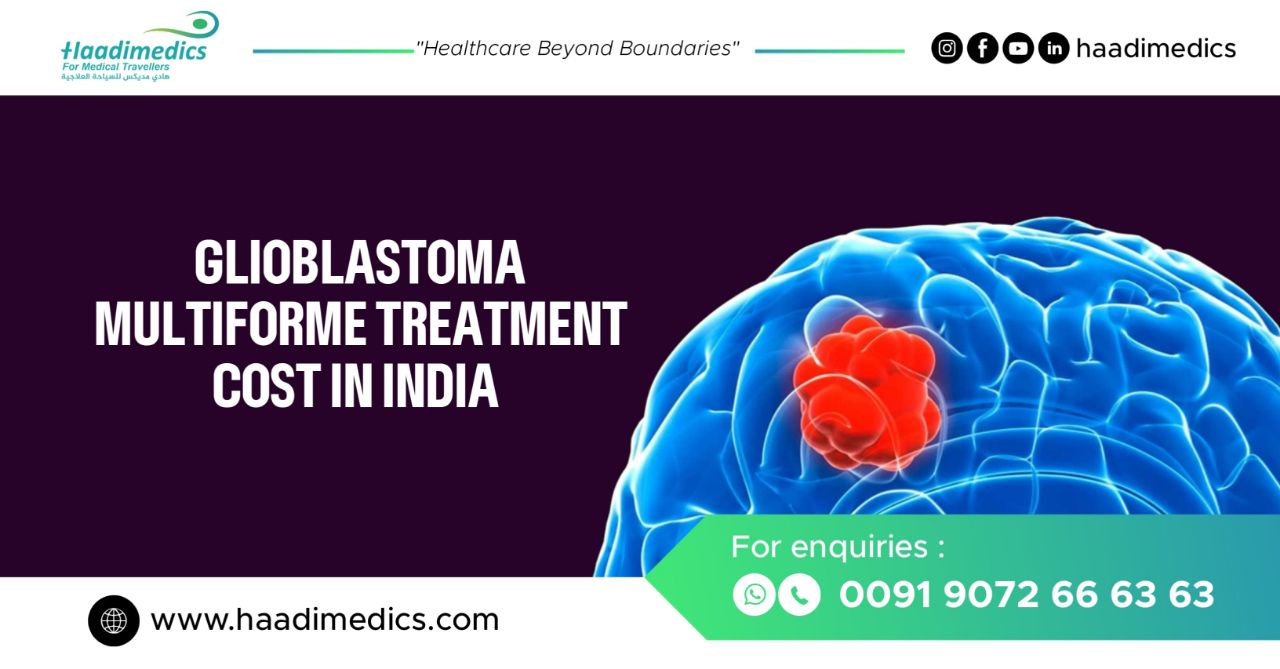Glioblastoma multiforme (GBM) is a complex and aggressive form of brain cancer that requires comprehensive treatment. India has made significant strides in neurosurgery and oncology, offering advanced treatment options for complex conditions like GBM. With state-of-the-art facilities, skilled neurosurgeons, and innovative treatment approaches, India has emerged as a destination of choice for patients seeking effective GBM treatment.
What is Glioblastoma Multiforme?
Glioblastoma multiforme (GBM) is a highly malignant brain tumor originating in the brain's glial cells. It is known for its rapid growth and infiltrative nature, making it challenging to treat. GBM often requires a multimodal approach to treatment, including surgery, radiation therapy, and chemotherapy.
Symptoms
1. Headaches
2. Seizures
3. Cognitive Changes
4. Motor Weakness
5. Vision Changes
6. Speech Difficulties
7. Behavioral Changes
8. Sensory Changes
9. Fatigue
10. Changes in Consciousness
Why is it done?
Primarily, GBM is non-curable. The treatment aims to remove as much of the tumor as possible, alleviate symptoms, prolong survival, and improve the patient's quality of life. Due to the aggressive nature of GBM, timely and comprehensive treatment is essential to optimize outcomes and maximize the patient's chances of survival.
Risks
GBM treatment carries inherent risks, including surgical complications, radiation-induced side effects, and chemotherapy-related toxicity. Additionally, GBM has a high propensity for recurrence, necessitating ongoing monitoring and potential retreatment. Patients must weigh the risks and benefits of treatment in consultation with their healthcare providers.
Preparation
Preparation for GBM treatment involves thorough preoperative evaluation, including imaging studies and neurological assessments. Patients may undergo blood tests, electrocardiography (ECG), and other diagnostic tests to assess their overall health and suitability for surgery. Mental and emotional preparation is also crucial, as GBM treatment can be physically and psychologically demanding.
Procedures
GBM treatment typically involves a combination of surgical resection, radiation therapy, and chemotherapy. Surgical resection aims to remove as much of the tumor as possible without causing significant neurological deficits. This may be followed by adjuvant therapies such as radiation therapy, which targets residual tumor cells, and chemotherapy, which helps control tumor growth and recurrence.
Best Hospitals in India
- Rajagiri Hospital, Kochi
- Apollo Indraprastha Hospital, Delhi
- Gleneagles Global Hospital, Kolkata
- Artemis Hospital, Gurgaon
- Wockhardt Hospitals, Mumbai
- Fortis Memorial Research Institute, Gurgaon
- Medanta Hospital, Gurugram
Best Surgeons for the Treatment
- Dr. Sandeep Vaishya
- Dr. Sudhir Tyagi
- Dr. Siddhartha Ghosh
- Dr. Arun Saroha
- Dr. Arun L. Naik
- Dr. V. P. Singh
- Dr. Paresh K. Doshi
Cost Comparison
GBM cost in Hyderabad starts from INR 275000 (USD 3297).
Turkey – USD 6500
Thailand – USD 7250
FAQ
1. What is the prognosis for GBM patients?
The prognosis for GBM patients is generally poor, with a median survival of around 12 to 18 months following diagnosis. However, outcomes can vary depending on factors such as the extent of tumor resection, tumor location, and patient age and overall health.
2. Is GBM treatment covered by health insurance?
GBM treatment may be partially covered by health insurance, depending on the type of insurance plan and coverage. Patients are advised to check with their insurance provider to determine coverage eligibility and potential out-of-pocket expenses.
3. Are there any alternative treatment options for GBM?
While surgery, radiation therapy, and chemotherapy are the standard treatment modalities for GBM, some patients may explore alternative or complementary therapies such as immunotherapy, targeted therapy, or experimental treatments through clinical trials.
4. What are the potential side effects of GBM treatment?
Common side effects of GBM treatment may include fatigue, nausea, hair loss, cognitive changes, and increased risk of infection. The severity and duration of side effects vary depending on the type and intensity of treatment.
5. Can GBM recur after treatment?
Yes, GBM has a high recurrence rate, with tumors often regrowing despite initial treatment. Patients may require ongoing surveillance imaging and periodic follow-up appointments to monitor for signs of recurrence.
6. Is GBM treatment available for pediatric patients?
Yes, GBM can occur in pediatric patients, although it is relatively rare. Treatment approaches for pediatric GBM may differ from those used in adults and typically involve a multidisciplinary team of pediatric oncologists, neurosurgeons, and radiation oncologists.
7. What supportive care measures are available for GBM patients?
GBM patients may benefit from supportive care measures such as physical therapy, occupational therapy, speech therapy, and psychological support to help manage symptoms, improve quality of life, and enhance overall well-being.
8. Are there any dietary recommendations for GBM patients?
While there is no specific diet proven to cure GBM, maintaining a balanced diet rich in fruits, vegetables, lean proteins, and whole grains can support overall health and well-being during treatment. Patients may also benefit from working with a registered dietitian to address individual nutritional needs.
9. Can GBM be prevented?
There are currently no known ways to prevent GBM, as the exact cause of the disease remains unclear. However, certain lifestyle factors such as avoiding tobacco use, limiting alcohol consumption, and maintaining a healthy weight may help reduce the risk of developing brain tumors.
10. How can international patients access GBM treatment in India?
International patients seeking GBM treatment in India can contact hospitals directly or engage the services of medical tourism facilitators who specialize in coordinating healthcare services for international patients. It's essential to research hospitals, verify credentials, and seek recommendations to ensure quality care and a positive treatment experience.


Comments